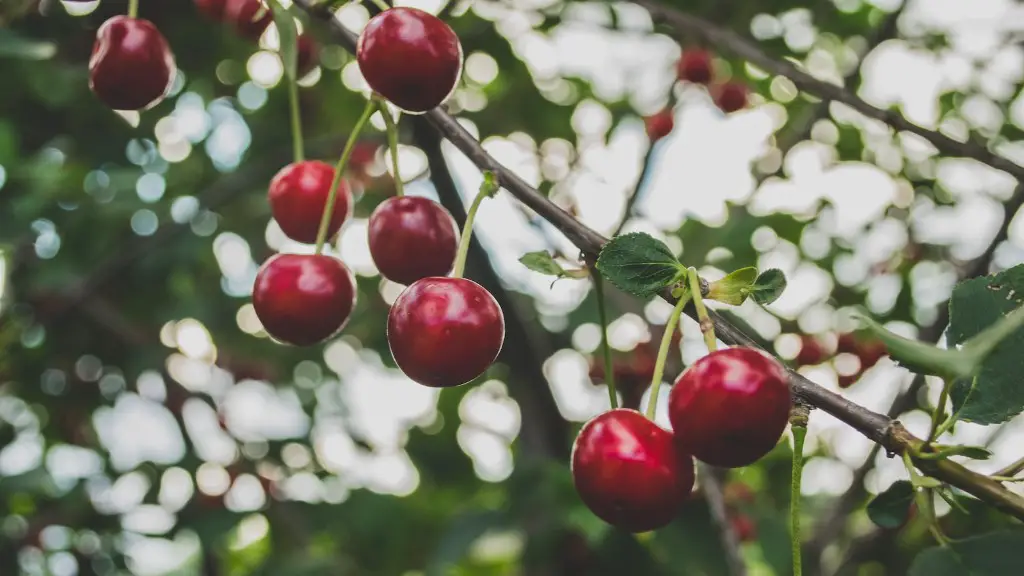Fertilizing a lemon tree is an important part of proper care and maintenance. Knowing how often to fertilize your tree can make the difference between having a meager crop of fruit or an abundant yield of lemons. Keep reading to learn more about how often you should fertilize your lemon tree.
Generally, the best way to determine when to fertilize is by looking at the tree’s age and its soil quality. Young trees will need to be fertilized more often than older, established trees. If the soil contains plenty of nutrients, you may also be able to reduce the frequency of fertilizer applications. It’s also important to consider the size of your tree and note if has grown since the last fertilization.
For young trees, fertilization should take place every four to six weeks. For established trees, you should fertilize every three to six months. Don’t forget to add a special fertilizer designed for citrus trees and make sure a small amount of fertilizer is sprinkled around the perimeter of the tree. For extra nutrition, consider adding some compost to the soil as well.
Protecting a lemon tree from pests is an important part of fertilizing. Make sure to regularly inspect the tree for any signs of pests, such as aphids, caterpillars, or mealybugs, and apply a pesticide if you find any. It’s also a good idea to occasionally spray the leaves and branches of the tree with lighter horticultural oil or insecticidal soap to discourage pests and keep the lemon tree healthy.
By following these fertilization guidelines, you can ensure that your lemon tree gets the nutrients it needs and is able to produce a healthy crop of fruit. To maintain a well-nourished and vibrant lemon tree, remember to water properly and stay on top of regularly checking the soil quality, inspecting for pests, and fertilizing the tree.
Types of Fertilizers
When it comes to fertilizers, there are a few types of options that can be used to nourish a lemon tree. Water-soluble fertilizers, for instance, can be easily applied to the soil with a hose-end sprayer. They’re convenient and provide the essential nutrients the tree needs to thrive. Granular fertilizers are another option they are applied directly to the soil, and they can encourage root growth with the addition of amendments such as sulfur and magnesium.
Organic fertilizers will provide an extra boost to the soil. They are made from natural materials like seaweed, alfalfa meal, and fish emulsion. These fertilizer can provide micro and macro nutrients that may not be found in commercial synthetic fertilizers. Lastly, foliar fertilizers can also be used. This type of fertilizer is sprayed directly on the leaves of the lemon tree, so that it is quickly absorbed, allowing for quick and effective absorption.
Lemon Tree Fertilizing Tips
When fertilizing your lemon tree, there are a few tips and tricks that can help ensure optimal results. Firstly, always use a fertilizer specifically designed for citrus trees. Secondly, be sure to use appropriate amounts of fertilizer. Too much can cause the leaves of the tree to develop yellowing and can also render the soil sterile. Lastly, be sure to water your tree well after fertilizing, as this will help the soil absorb the fertilizer and nourish the lemon tree.
Time of Year to Fertilize Lemon Tree
If you live in an area with mild temperatures, you can fertilize your lemon tree year-round. If you experience very hot summer climates, however, it’s best to wait until the summer heat has subsided before applying a fertilizer. This will help protect the lemon tree from heat-related damages and keep it from becoming stressed out.
For colder climates, it’s best to hold off on fertilizing until late winter or early spring, when temperatures are warmer and the risk of frost is lower. Make sure to check the expiration date on the fertilizer you choose, as some may not be recommended for long-term storage.
Application of Fertilizer
When fertilizing your lemon tree, you’ll want to apply the fertilizer directly to the soil, avoiding the trunk to reduce the risk of damaging it. For granular fertilizers this can be done using a hand spreader or a fertilizer injector. For liquid fertilizers, use a hose-end backpack sprayer and be sure to evenly cover the entire tree circle. This will ensure the entire tree gets the nutrients and protection it needs.
Watering a Lemon Tree After Fertilizing
After you’ve applied the fertilizer, make sure to water the tree deeply to give the fertilizer an opportunity to get absorbed into the soil. Water slowly and evenly, allowing the tree to get full nourishment from the fertilizer. You should wait about two weeks before watering the tree again, so the fertilizer can be fully absorbed into the soil.
Fertilizer for the Healthy Growth of the Lemon Tree
Fertilizing your lemon tree will provide key nutrients it needs to stay healthy and vigorous. Commercial synthetic fertilizers are the most cost-effective and nutrient-packed option. Organic fertilizers, while slightly more expensive, can provide a deeper, root-level nourishment to your tree that’s beneficial in the long run. Foliar fertilizers are a good option for quick absorption and nutrients to be directly provided to the foliage.
Remember that the amount of fertilizer you apply, when you apply it, and the type you use will all have an affect on the health of your lemon tree. Follow this guide and you’ll be able to confidently fertilize your lemon tree to ensure a plentiful harvest of delicious lemons.


